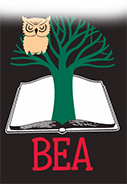Reasons Why You Should Use An Online Tutor
Learning is a continuous process that occurs throughout our lives. Whether you are a student, professional or simply looking to acquire new knowledge, it is important to adopt effective learning strategies. Here are the 5 most effective learning strategies you can use to improve your learning.
Spaced repetition
Spaced repetition is a technique in which you review information at increasing intervals of time. For example, you may review material immediately after learning it, then again a day later, a week later, and so on. This technique has been shown to be effective in helping learners retain information over a longer period of time.
Practice and repetition
Practice and repetition are one of the oldest and most effective learning strategies. You can improve your understanding and retention of the material by repeatedly performing a task or answering questions related to a particular topic.
Use of mnemonics
Mnemonics are memory aids that help you remember information. For example, you can use acronyms, rhyming, or mental images to associate information with a memorable word or phrase. By using mnemonics, you can more easily recall information and have a deeper understanding of the material.
Real-world application
Applying what you have learned in real-world situations is one of the most effective ways to improve your learning. For example, if you are learning a new language, you can practice speaking the language in real-world situations such as ordering food in a restaurant or conversing with a native speaker. This helps to reinforce the material and improve retention.
Visual aids
Visual aids, such as diagrams, charts, and videos, can help you better understand and remember information. They can also make learning more engaging and enjoyable. Visual aids can also help to break up large blocks of text and make it easier to absorb and remember information.
Self-testing
Self-testing is a great way to reinforce what you have learned and assess your understanding of the material. You can use flashcards, quizzes, and other self-testing tools to test your knowledge and identify areas where you need to focus your efforts.
Collaborative learning
Collaborative learning involves working with others to learn and understand new material. This can be in the form of group discussions, team projects, or simply studying with a study partner. Collaborative learning has been shown to be effective in improving retention and understanding of information and building teamwork and communication skills.
onclusion:
In conclusion, improving your learning requires adopting effective learning strategies. By actively engaging in the learning process, using spaced repetition, practicing and repeating information, utilizing mnemonics, and applying what you have learned in real-world situations, you can become a more effective learner and achieve your learning goals.
